Nov 07, · High expressed emotion (EE) in a patient's family is a known risk factor of relapse in schizophrenia The three components of high EE – criticism, hostility and emotional overinvolvement – were developed through a datadriven approach and a focus on overt abrasive behaviours The influence of covert abrasive behaviours has not been exploredJun 01, 11 · Although there is a paucity of research on family therapy for schizophrenia in the South African context, we found a number of studies conducted in both developed and developing countries Problems with adherence to medication, lack of psychoeducation and low expressed emotion (EE) were identified as challenges to effective family therapy modelsBrown & Rutter, 1966),
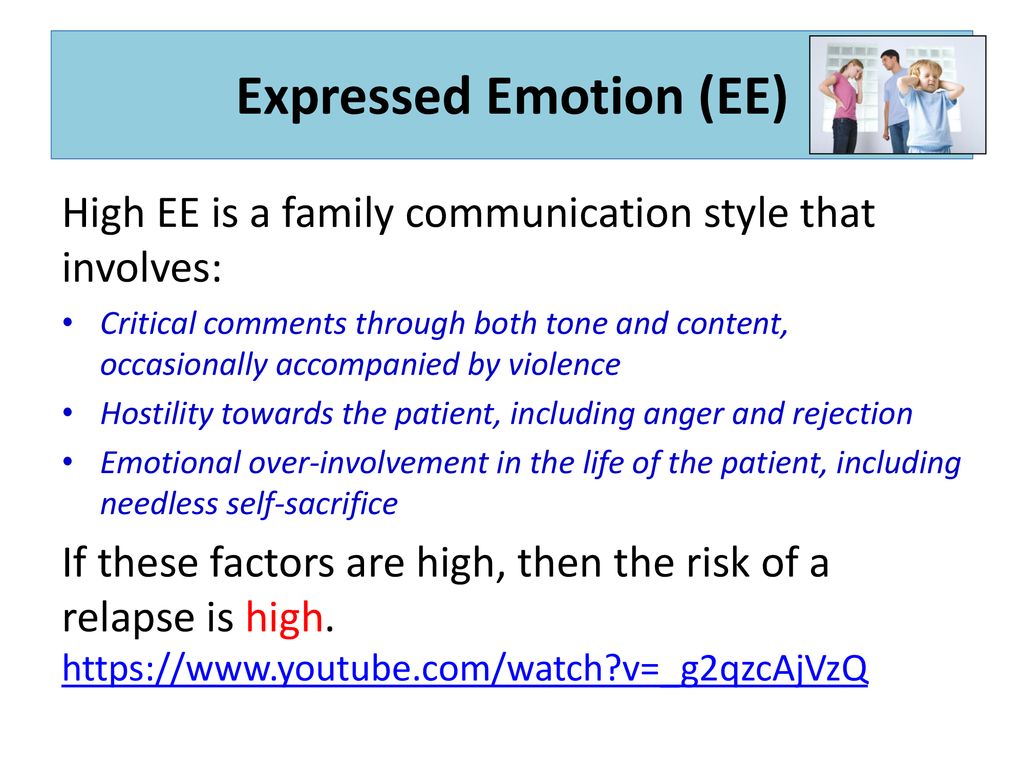
Psychological Explanations For Schizophrenia 1 Ppt Download
What is expressed emotion schizophrenia
What is expressed emotion schizophrenia-Psychophysiological responses of schizophrenic patients to high and low expressed emotion relatives Sturgeon D, Kuipers L, Berkowitz R, Turpin G, Leff J Measurements of spontaneous fluctuations in skin conductance in acutely ill schizophrenic patients were made in aThe expressed emotion (EE) measure is a robust predictor of relapse in schizophrenia At least twelve studies from a range of cultures have now shown this, although the authors of one maintain their findings are the result of confounding factors
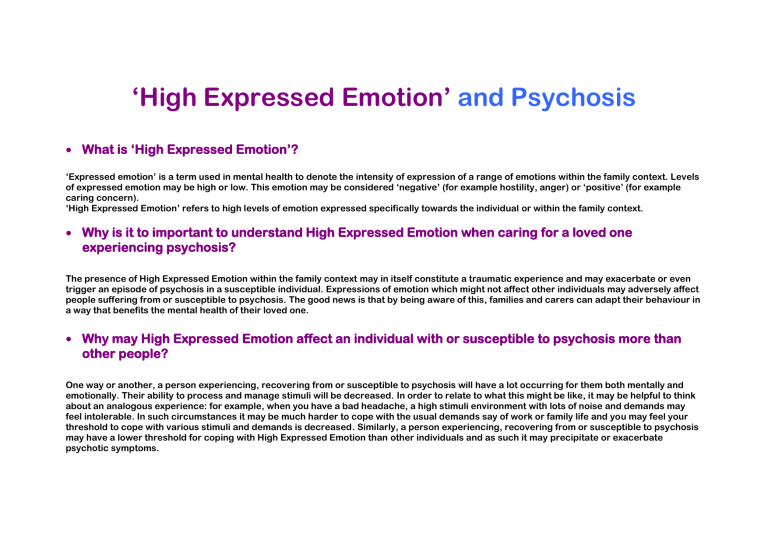


High Expressed Emotion Oxford Health Nhs Foundation Trust
Aug 23, 12 · mechanisms, carers receiving FIp were more likely to shift from high to low expressed emotion and less likely to report patient focused Read Summary Schizophrenia is a complex biopsychosocial condition in which expressed emotion in family members is a robust predictor of relapse NotJun 01, 18 · Another follow up study reported that patients off medications and exposed to high expressed emotion had higher rates of relapse, whereas, only 15% of patients with schizophrenia with low contact and on medication relapsed (Hirsch, 19)AbstractExpressed emotion (EE) is a measure of the family environment that predicts worse clinical outcomes for patients with a range of disorders This article describes the assessment of EE and the evidence linking EE to clinical relapse in patients with psychopathology This is followed by consideration of the possible explanatory models that might account for the EErelapse link and a
An Attributional Analysis of Expressed Emotion in MexicanAmerican Families With Schizophrenia Amy Weisman, Steven Regeser Lopez, Marvin Karno, and Janis Jenkins In this study we tested an attributional model of expressed emotion (EE) among MexicanAmerican families A sample of 46 key family members of schizophrenic patients were measured onRelapse rates in people with schizophrenia returning home after hospitalization when expressed emotion high 51% relapse, expressed emotion low 13% also the more time spent in facetoface interaction the greater chance of relapse highest relapse rate (92%) was found in homes with High degree of expressed emotionEmotion" (yelling, shouting, fighting, or critical or hostile comments) and stress that is in the living environment of the person with schizophrenia Research has demonstrated that individuals from families with high "expressed emotion" are 37 times more likely to relapse than in families from low expressed emotion families
Keywords expressed emotion, assessment, rating scales, Five Minute Speech Sample (FMSS), perceived criticism The construct of expressed emotion (EE) is now well established as an important measure of the family environment Developed in the 1960s and 1970s in England by Brown, Birley, and Wing (1972;Background Expressed emotion is a measure of a relative's attitudes and behaviors toward an ill family member Originally developed and studied among patients with schizophrenia, the construct has been found to be a robust predictor of treatment outcome and relapse across a number of mental and physical illnessesThe Components of Expressed Emotion George Brown explained five components of EE which includes 1 Critical comments 2 Hostility 3 Emotional over involvement (EOI) 4 Positive remarks 5 Warmth Critical comments, hostility and EOI denote high expressed emotion while positive remarks and warmth indicate low EE
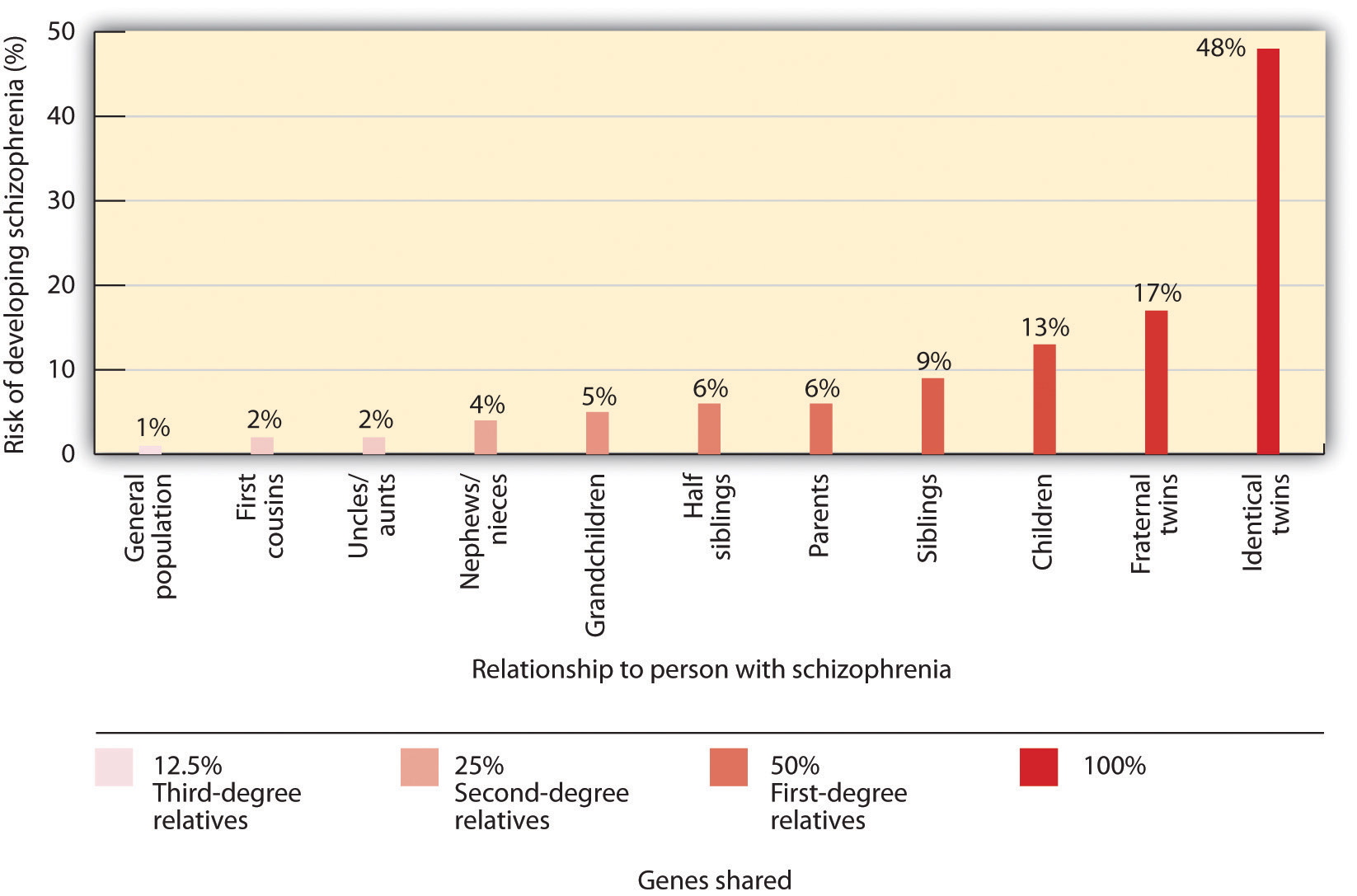


Schizophrenia The Edge Of Reality And Consciousness
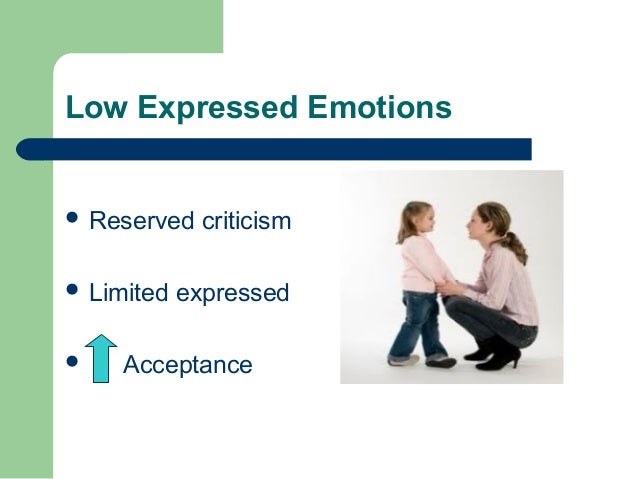


Expressed Emotions
Expressed emotion are significantly more likely to experience a clinical relapse than patients residing in households with low levels of expressed emotiontv12r Some studies have suggested that it might not always be desirable for schizophrenic patients to return to the close emotional ties often existing with parents and spouse0'14t• Another family variable associated with schizophrenia is a negative emotional climate, or more generally a high degree of expressed emotion (EE) EE is a family communication style that involves criticism, hostility and emotional overinvolvement5 Pourmand D, Kavanagh DJ, Vaughan K Expressed emotion as predictor of relapse in patients with comorbid psychoses and substance use disorder Aust N Z J Psychiatry 05; 6 Tanaka S, Mino Y, Inoue S Expressed emotion and the course of schizophrenia in Japan Br J Psychiatry 1995; 7 King S, Dixon MJ



Pdf Staff Expressed Emotion And Causal Attributions For Client Problems On A Low Security Unit An Exploratory Study



Sociocultural Factors Sz Ppt Download
Start studying Lecture 5 Expressed Emotion in Schizophrenia and Other Disorders Learn vocabulary, terms, and more with flashcards, games, and other study toolsThe form of high expressed emotion (EE) (Mo¨llerLeimku¨hler , & Jandl, 11) The expressed emotion (EE) is considered to be an adverse family environment, which includes the quality of interaction patterns and nature of family relationships among the family caregivers and patients of schizophrenia disordersFamily members high in expressed emotion cause relapse in psychological disorders such as schizophrenia, alcoholism, children with learning disabilities, and bipolar disorder The stress from negative criticism and pity becomes a burden on the person with a


Predictors Of Criticism And Emotional Over Involvement In Relatives Of Early Psychosis Patients



Lecture 6 Expressed Emotion In Schizophrenia And Other Disorders Psy 303 Psychopathology Docsity
Aug 06, 1994 · Patients with schizophrenia in families with high expressed emotion are more likely to relapse despite receiving maintenance neuroleptic medication, and to relapse more often, than those whose key relatives show low expressed emotion 13,15,16 Spending much of the week in close contact with a relative with high expressed emotion greatlyJan 01, 12 · Expressed emotion in schizophrenia an overview The expressed emotion (EE) is considered to be an adverse family environment, which includes the quality of interaction patterns and nature of family relationships among the family caregivers and patients of schizophrenia and other psychiatric disorders By contrast, low EE caregivers areOct 10, 14 · Flat Affect in Schizophrenia Relation to Emotion Processing and Neurocognitive MeasuresSchizophrenia Bulletin (06) 32 (2) Komaroff, AL Harvard Medical School's Family Health Guide on Schizophrenia New York Free Press, 06 Print Shtasel DL, Gur RE, Gallacher F, Heimberg C, Cannon TD, Gur RC Phenomenology and functioning in
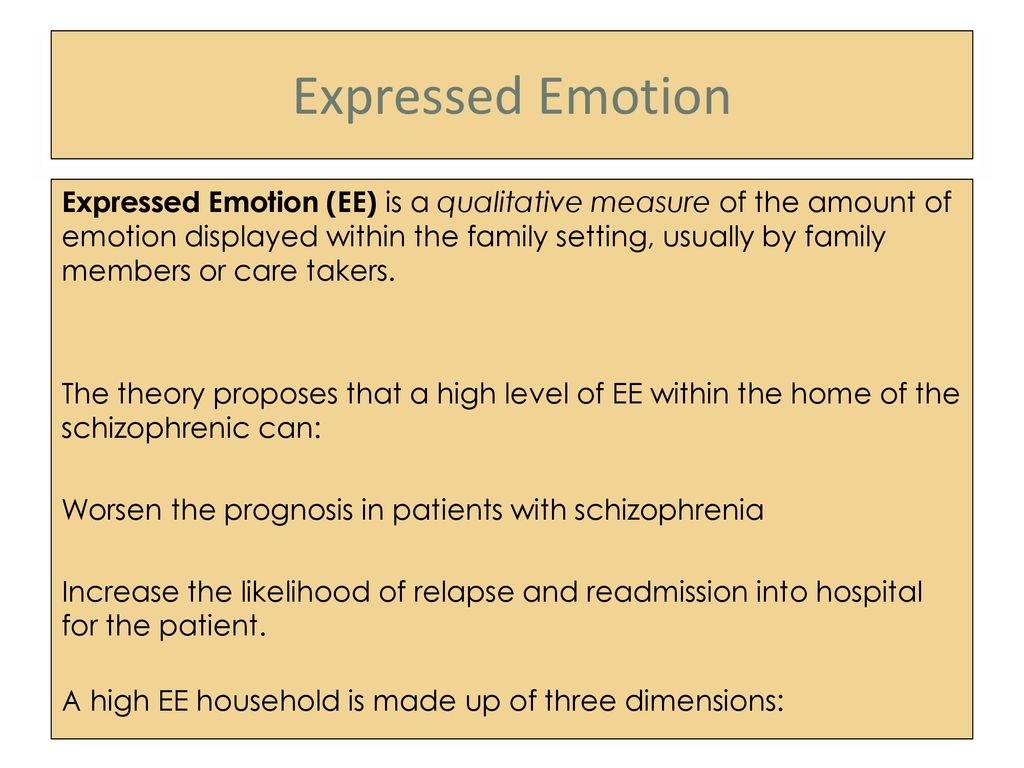


Psychological Explanation Ppt Download



A Concise Self Report Scale Can I Preview Related Info Mendeley
Background This study assessed the effect of expressed emotion (EE) among caregivers of schizophrenia patients on their care burden and the illness rehospitalization rate Subjects and methods A total of 64 schizophrenia patients hospitalized for the first time and their key caregivers were recruited The Chinese version of the Camberwell Family Interview (CFICV) wasOn schizophrenia Expressed emotion (EE) can be interpreted as a complex with low levels of emotion, are said to be low expressed emotion (LEE) families19 Families with HEE tend to believe that the symptoms can somehow be controlled by the patient35Low expressed emotion causes a different stress and it is directed at the patient less The attitudes of family members with high expressed emotion are too strong for the patient and the patient now has to deal with the mental illness and the criticism from those that they need support from in their time of recovery
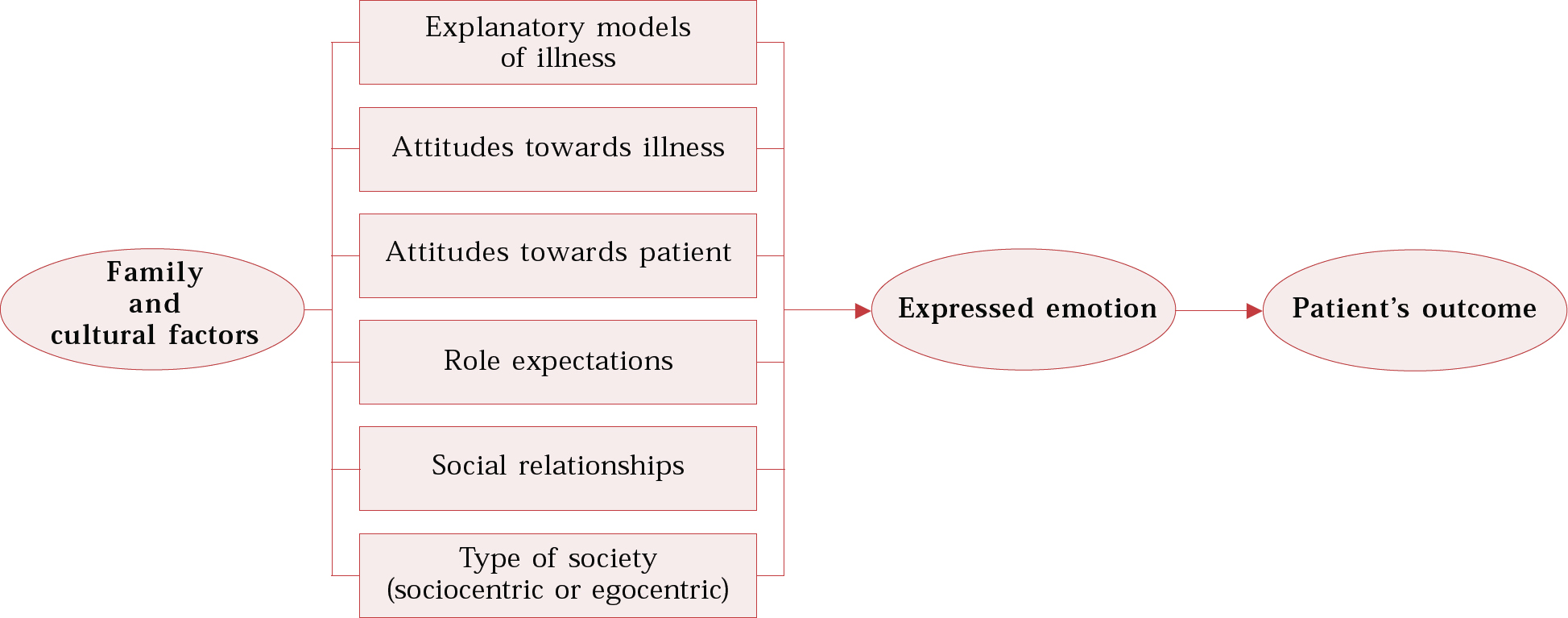


Expressed Emotion Across Cultures Advances In Psychiatric Treatment Cambridge Core



Pdf Ethnicity Expressed Emotion Attributions And Course Of Schizophrenia Family Warmth Matters
Expressed Emotion and FirstAdmission Schizophrenia Volume 156 Issue 3 L Barrelet, F Ferrero, L Szigethy, C Giddey, G PellizzerNov 07, · Background High expressed emotion (EE) in a patient's family is a known risk factor of relapse in schizophrenia The three components of high EE criticism, hostility and emotional overinvolvement were developed through a datadriven approach and a focus on overt abrasive behavioursExpressed emotion, critical comments, hostility and emotional over involvement have been shown to be most predictive of relapse 1 Expressed emotion can be rated as 'high' or 'low' Most studies support the hypothesis that high expressed emotion predicts relapse of schizophrenia 2 Brown and colleagues studied relapse rates of people in



Expressed Emotion And Relapse Of Schizophrenia In Hong Kong
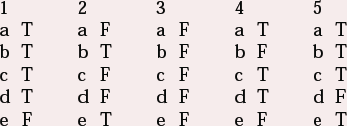


Expressed Emotion Across Cultures Advances In Psychiatric Treatment Cambridge Core
Oct 02, 13 · Expressed Emotions Niharika Thakkar MA, NET, MBPsS, Clinical Psychology Slideshare uses cookies to improve functionality and performance, and to provide you with relevant advertising If you continue browsing the site, you agree to the use of cookies on this websiteThe relapse rate for the patients * Received for Publication March 2, 06 from homes that showed high expressed * Accepted May 15, 06 emotion was 50%, compared with 12% for 424 Pak J Med Sci 06 Vol 22 No 4 wwwpjmscompk Schizophrenia those from with low expressed emotionHere I briefly discuss two published papers on the effects of expressed emotion and the impact it has on people with the mental illness Schizophrenia
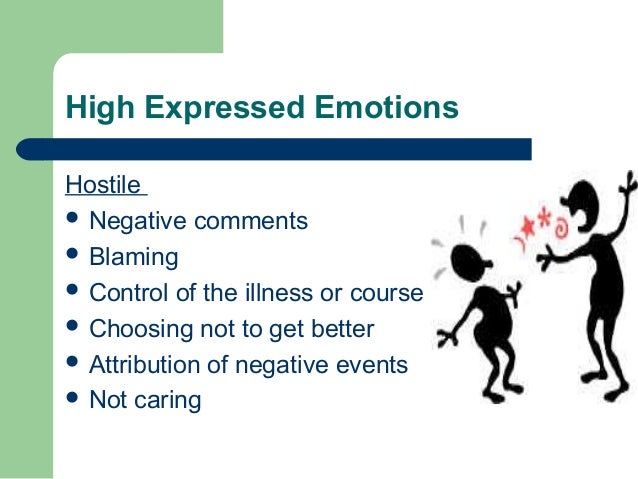


Expressed Emotions



High Expressed Emotion Oxford Health Nhs Foundation Trust
Sep 13, 12 · An appropriate understanding of the association between highExpressed Emotion (EE) in family members of people with schizophrenia, patients' and relatives' correlates is needed to improve adaptation of psychoeducational interventions in diverse cultures The aim of this study was to test the hypothesis that relatives designated as high EE would report higher subjectiveThe Implications of Expressed Emotion in Schizophrenia 1655 Words 7 Pages The emergence of Schizophrenia can be attributed to many individual factors including biological causes, such as heredity and genetics, sociopsychological influences, like social class, and social factors, namely stressful life eventsComparison of the needs and characteristics of relatives classified as high and low expressed emotion (EE) across a range of measures including social functioning and indices of stress and family burden revealed that high EE relatives reported higher levels of disturbed behaviour, subjective burden, and perceived themselves as coping less effectively
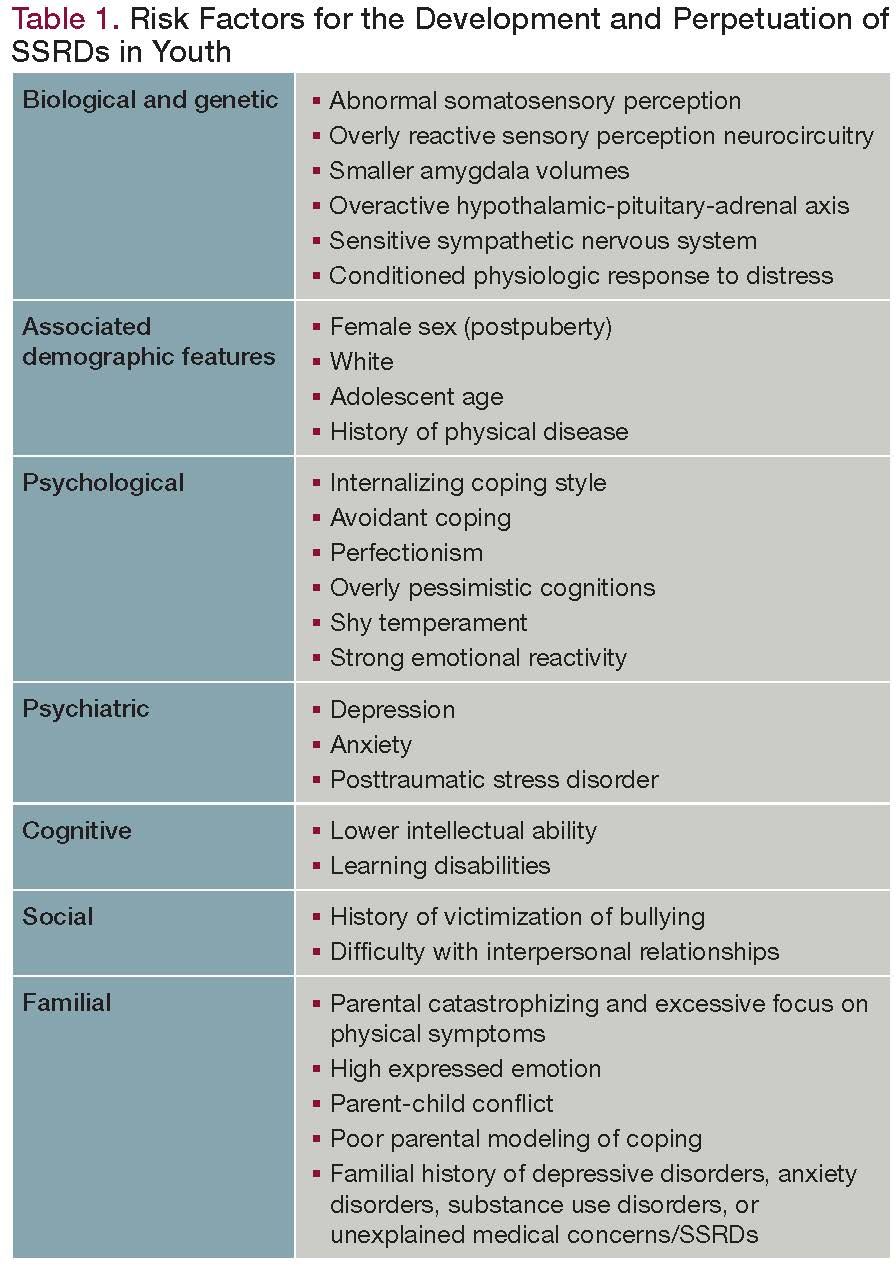


Care Of Youth Hospitalized With Somatic Symptom And Related Disorders



Talking The Talk Ideas For Conversations In Mental Health Settings Ppt Download
Note A great deal of research has examined the role of "expressed emotion" in families that have a member with schizophrenia High levels of expressed emotion (hostility, being overly critical, emotional overinvolvement) in these families have been linked to an increased risk for relapse and rehospitalizationJun 13, 17 · Effect of caregivers' expressed emotion on the care burden and rehospitalization rate of schizophrenia Xia Wang,1 Qiongni Chen,2 Min Yang1 1Xiangya School of Nursing, 2Nursing Department, Second Xiangya Hospital, Central South University, Changsha, Hunan, People's Republic of China Background This study assessed the effect of expressed emotion (EE) among caregivers of schizophreniaFound that schizophrenics living in families with high expressed emotion were nearly four times as likely to "relapse" as those with low expressed emotion Butzlaff & Hooley (1998) Meta Analysis Found that, through metaanlysis, expressed emotion in families usually correlated with relapse, especially with long lasting or chronic symptoms
/lady-sat-on-sofa-157111050-58aef5413df78c345b261e9a.jpg)


Flat Affect In Schizophrenia Symptoms And Treatment



Pdf Assessment Of Correlation Of General Health And Expressed Emotion In Family Members Of Patients With Schizophrenia In Selected Medical College Hospitals In Assam Semantic Scholar
The frequency of high expressed emotions was significantly higher than that of low expressed emotion 7072% (637±125) versus 2928% (131±156);More specifically, individuals with schizophrenia who are exposed to familial environments characterized by high levels of criticism, emotional overinvolvement (EOI), and/or hostility are more likely to experience a symptomatic relapse than individuals with schizophrenia who are exposed to familial environments in which the presence of these variables is low (Butzlaff and Hooley, 1998)Jun 01, 1998 · Expressed emotion was developed as a psychosocial predictor of relapse in schizophrenia However, several researchers have documented the link between EE and relapse in patients with mood disorders and eating disorders, such as anorexia and obesity



Pdf Schizophrenia Faz Halim Academia Edu



Explanations Of Schizophrenia Ppt Download
Oneyear followup suggested that the better outcome in cases of schizophrenia in Chandigarh may be related to the high proportion of relatives with low expressed emotion In a further report, the authors suggest that expression of anger in the form of hostility is relatively unmodified by cultural factors27Mar 28, 15 · The course of schizophrenia may vary as it depends on many factors Expressed emotion of family members has a considerable role in the treatment process Schizophrenia sufferers who are exposed to family environments characterized by a high level of criticism, hostility and emotional overinvolvement demonstrate a higher rate of relapseApr 01, 06 · Research on schizophrenia has suggested an association between relapse of patients and high expressed emotion (EE), defined as criticism, hostility, or emotional overinvolvement of at least one family member In international studies, however, the majority of families of persons with schizophrenia demonstrate low expressed emotion



Schizophrenia The Lancet



12 Schizophrenia Spectrum Disorders Cengage Learning 16 Introduction
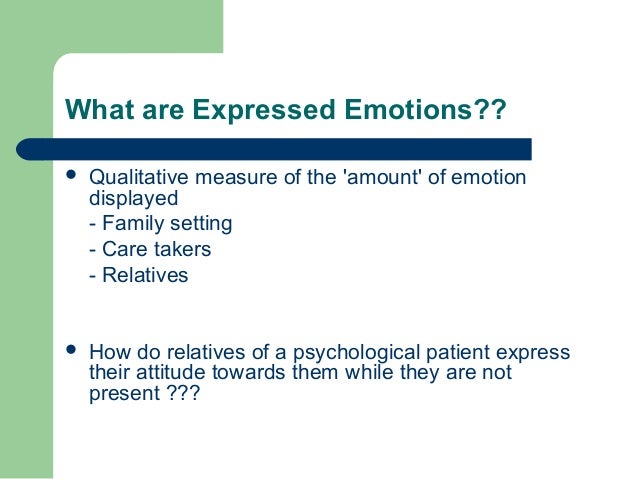


Expressed Emotions



Expressed Emotion In The Families Of Patients With Schizophrenia And Its Influence On The Course Of Illness Semantic Scholar


Gale Onefile Health And Medicine Document Comparison Between Camberwell Family Interview And Expressed Emotion Scale In Determining Emotions Of Caregivers Of Schizophrenic Patients Sizofreni Hastalarina Bakim Verenlerin Duygu Ifadelerini


Predictors Of Criticism And Emotional Over Involvement In Relatives Of Early Psychosis Patients



Understanding Expressed Emotion Mechanisms An Investigation Of Behavioural Control Attributions And Distress In Relatives Of People With Psychosis Semantic Scholar
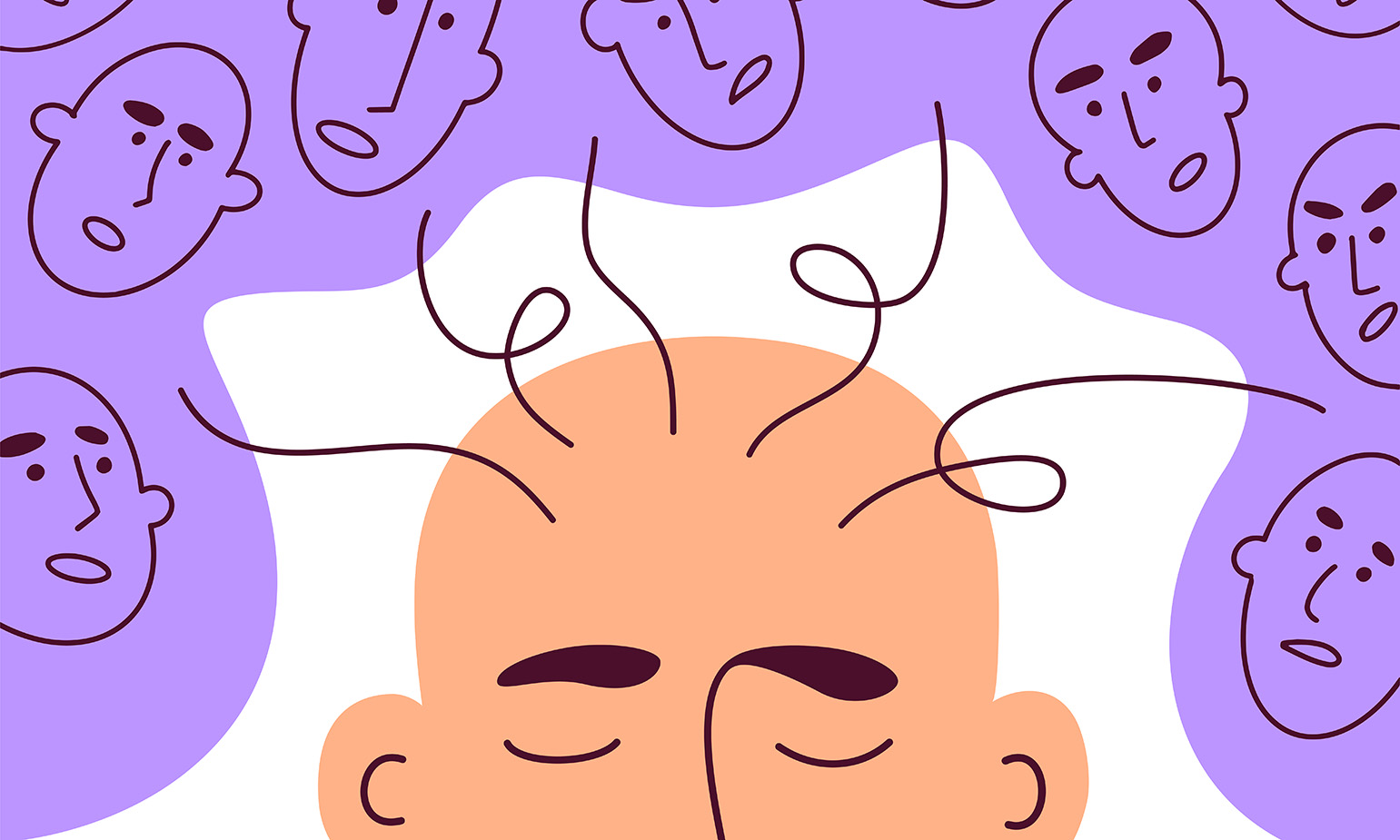


Schizophrenia Symptoms And Coping Tips Helpguide Org



The Role Of Family Dysfunction In Schizophrenia A Level Psychology Ao1 Revision Youtube



High Expressed Emotion 1 Psychosis Psychology



Chapter 15 Abnormal Psychology Chapter Plan N Introduction



Psychosocial Cultural Factors Underlying Treatments Of Schizophrenia Hindi Bpcc 133 5 10 5 11 Youtube
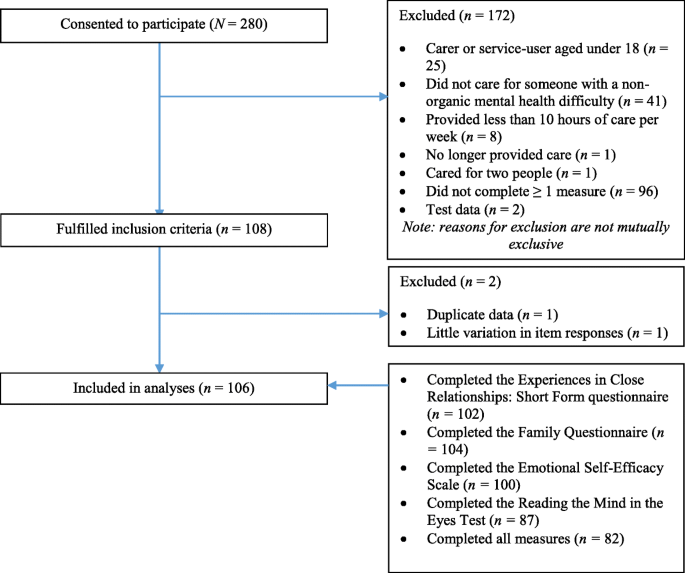


Attachment Mentalisation And Expressed Emotion In Carers Of People With Long Term Mental Health Difficulties Bmc Psychiatry Full Text



Pdf Expressed Emotion At First Episode Psychosis Investigating A Carer Appraisal Model
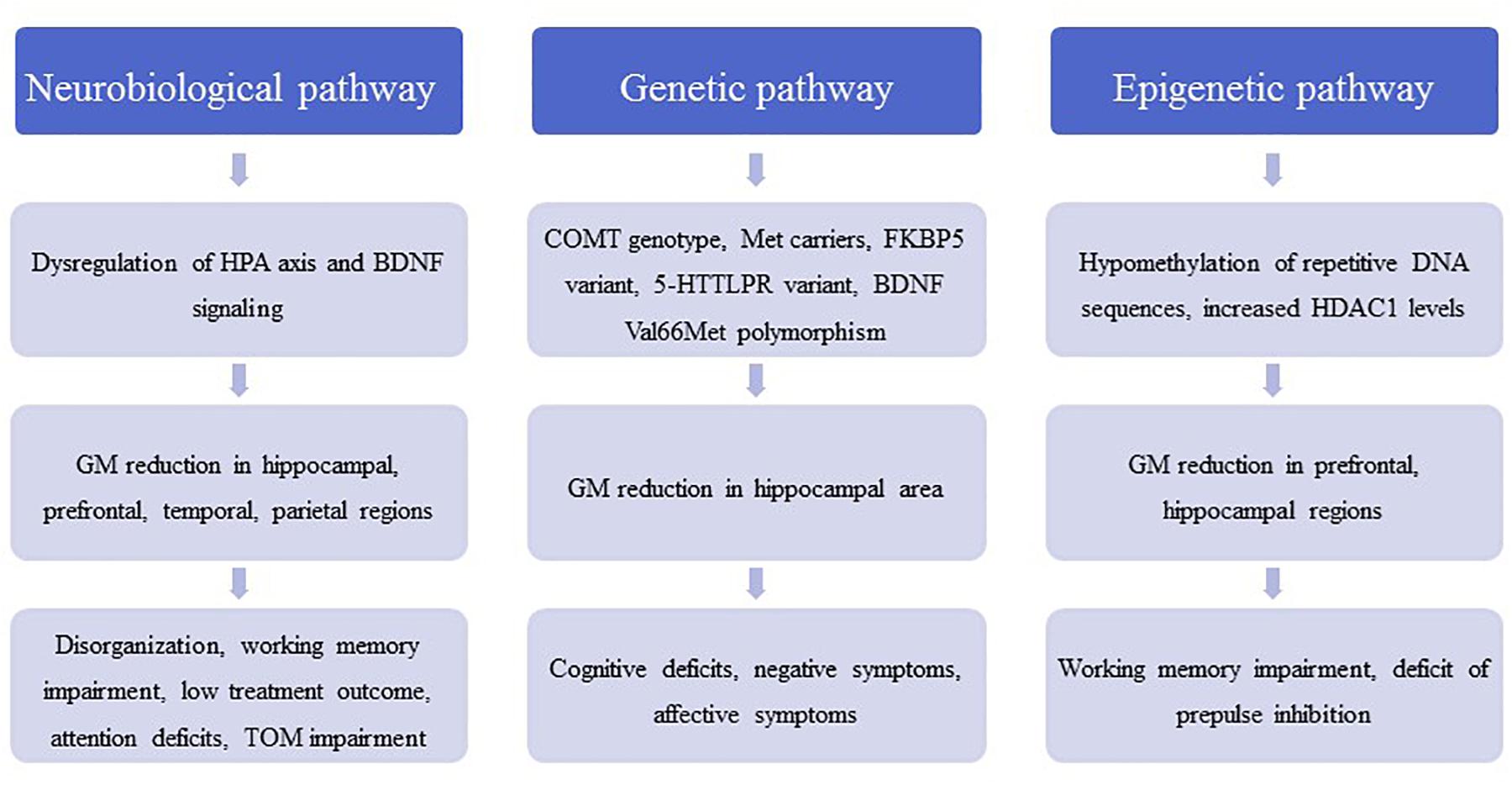


Frontiers Childhood Trauma In Schizophrenia Current Findings And Research Perspectives Neuroscience



Attachment Mentalisation And Expressed Emotion In Carers Of People With Long Term Mental Health Difficulties Bmc Psychiatry Full Text



Expressed Emotion And Relapse Of Schizophrenia In Hong Kong



Can Parent Training For Parents With High Levels Of Expressed Emotion Have A Positive Effect On Their Child S Social Anxiety Improvement Sciencedirect



Pdf Expressed Emotion And Language Disturbances In Parents Of Stable Schizophrenia Patients Semantic Scholar



Psych 1023 Chapter 15 Psychological Disorders Diagram Quizlet



Pdf Expressed Emotion In Psychiatric Disorders


Predictors Of Criticism And Emotional Over Involvement In Relatives Of Early Psychosis Patients



Pdf Carers Attributions About Positive Events In Psychosis Relate To Expressed Emotion Semantic Scholar
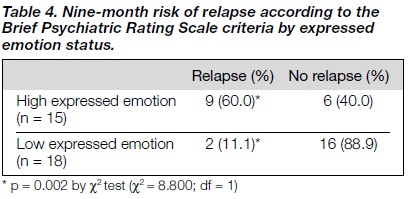


Expressed Emotion And Relapse Of Schizophrenia In Hong Kong
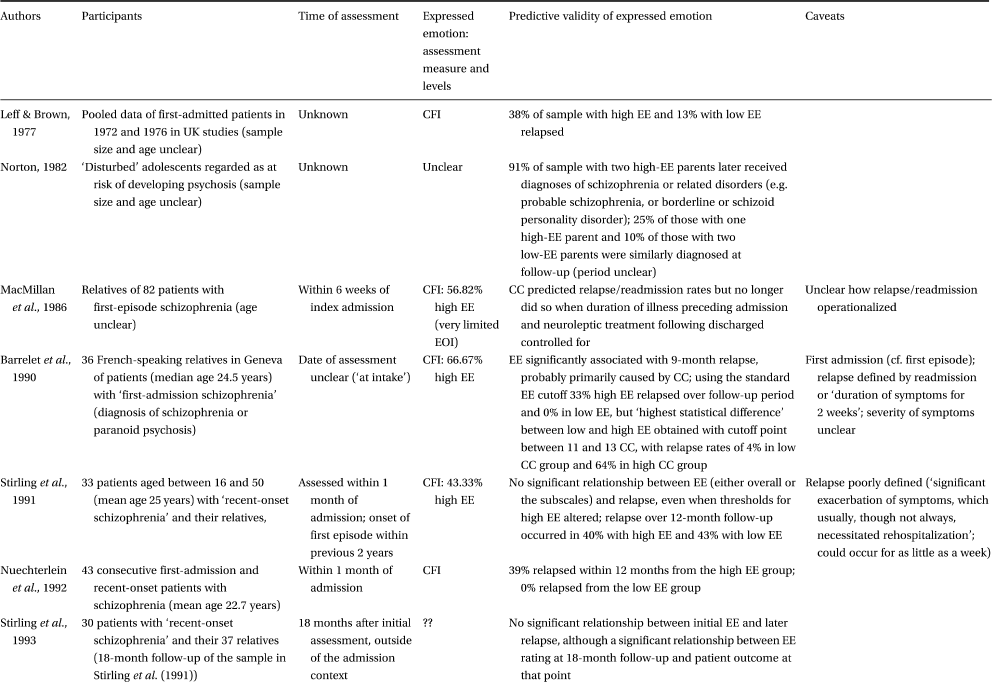


Family Intervention In Early Psychosis Chapter 17 The Recognition And Management Of Early Psychosis
/what-are-the-symptoms-of-schizophrenia-2953120-cba74c5e1dd942ecafde1824217603f9.png)


The Signs And Symptoms Of Schizophrenia



Expressed Emotion Framework Download Scientific Diagram



Pdf Expressed Emotion Attributions And Schizophrenia Symptom Dimensions Semantic Scholar



Determinants Of Expressed Emotion In Mothers Of Schizophrenia Patients Sciencedirect



Guilt Shame And Expressed Emotion In Carers Of People With Long Term Mental Health Difficulties A Systematic Review Sciencedirect
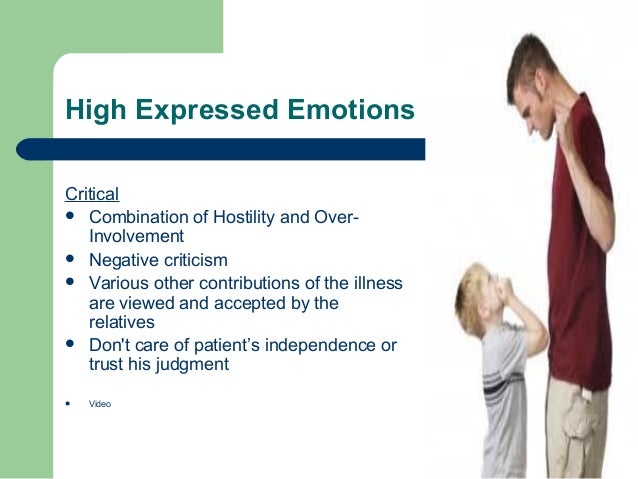


Expressed Emotions



Jaypeedigital Ebook Reader


Predictors Of Criticism And Emotional Over Involvement In Relatives Of Early Psychosis Patients



Expressed Emotion And Relapse Of Schizophrenia In Hong Kong



Expressed Emotion And Relapse Of Schizophrenia In Hong Kong
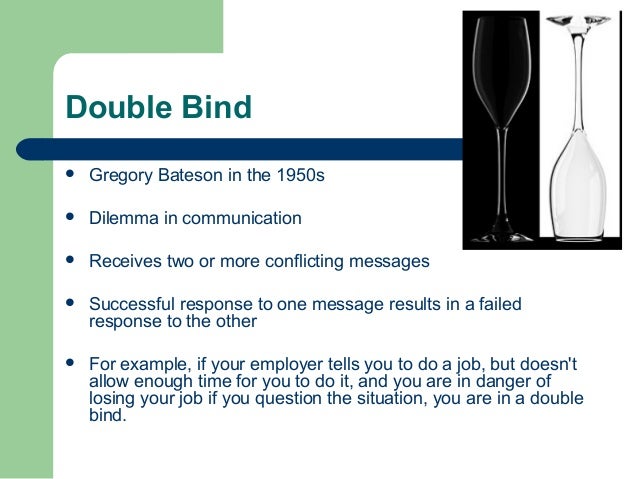


Expressed Emotions



Pdf Distress Expressed Emotion And Attributions In Relatives Of Schizophrenia Patients Semantic Scholar



Abnormal Psychology In A Changing World Eighth Edition Jeffrey S Nevid Spencer A Rathus Beverly Greene Chapter 12 Schizophrenia And Other Psychotic Disorders Ppt Download



Psychological Explanations For Schizophrenia 1 Ppt Download
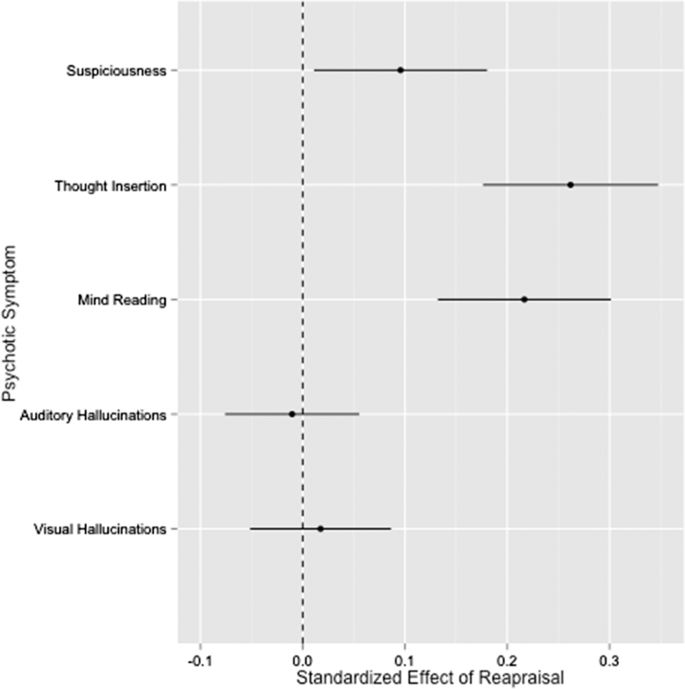


The Impact Of Emotion Awareness And Regulation On Psychotic Symptoms During Daily Functioning Npj Schizophrenia



Effect Of Caregivers Expressed Emotion On The Care Burden And Ppa
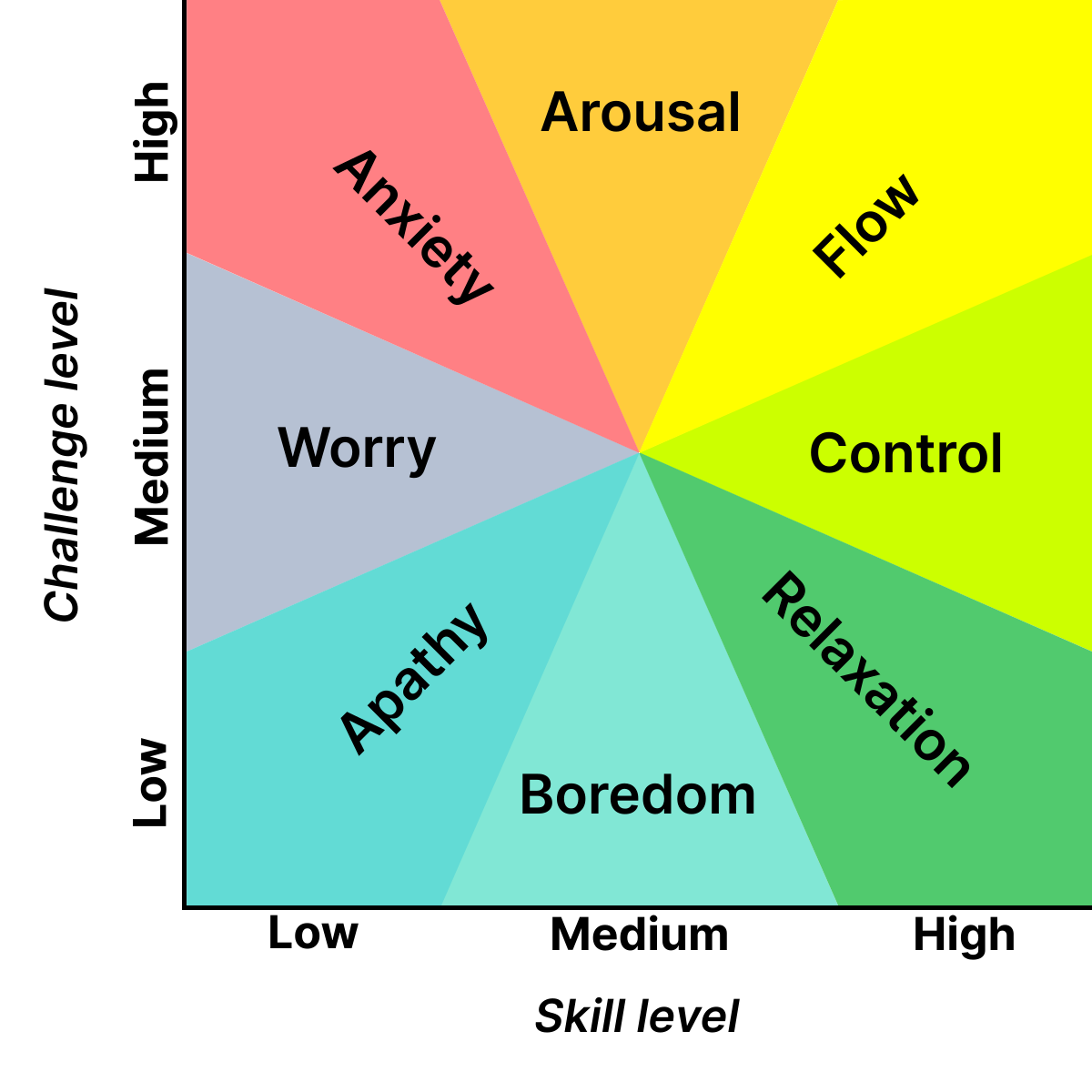


Apathy Wikipedia
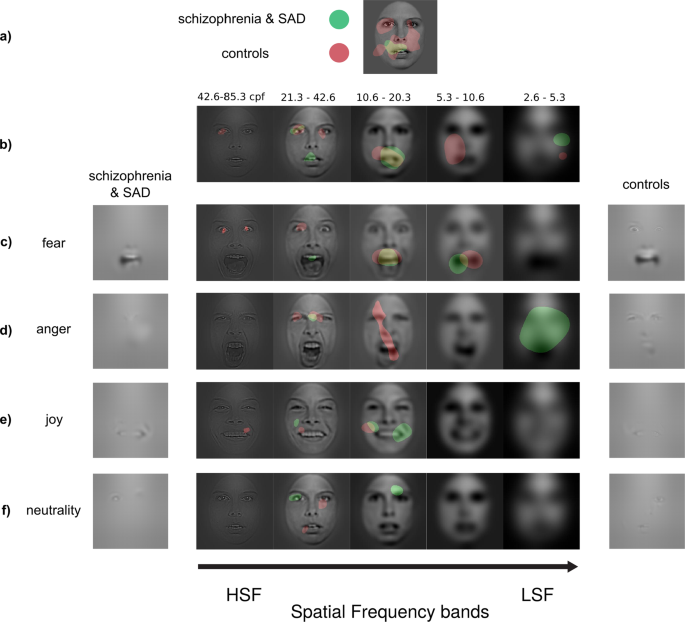


Abnormal Visual Representations Associated With Confusion Of Perceived Facial Expression In Schizophrenia With Social Anxiety Disorder Npj Schizophrenia



Discussing Expressed Emotions With Schizophrenia Youtube
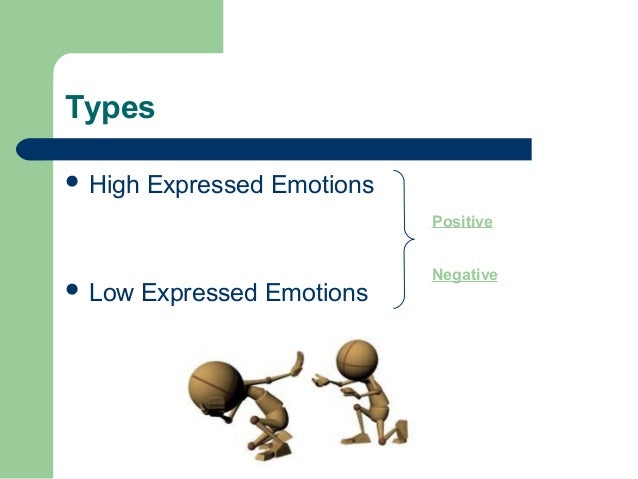


Expressed Emotions



Pdf Influence Of Carer Expressed Emotion And Affect On Relapse In Non Affective Psychoses
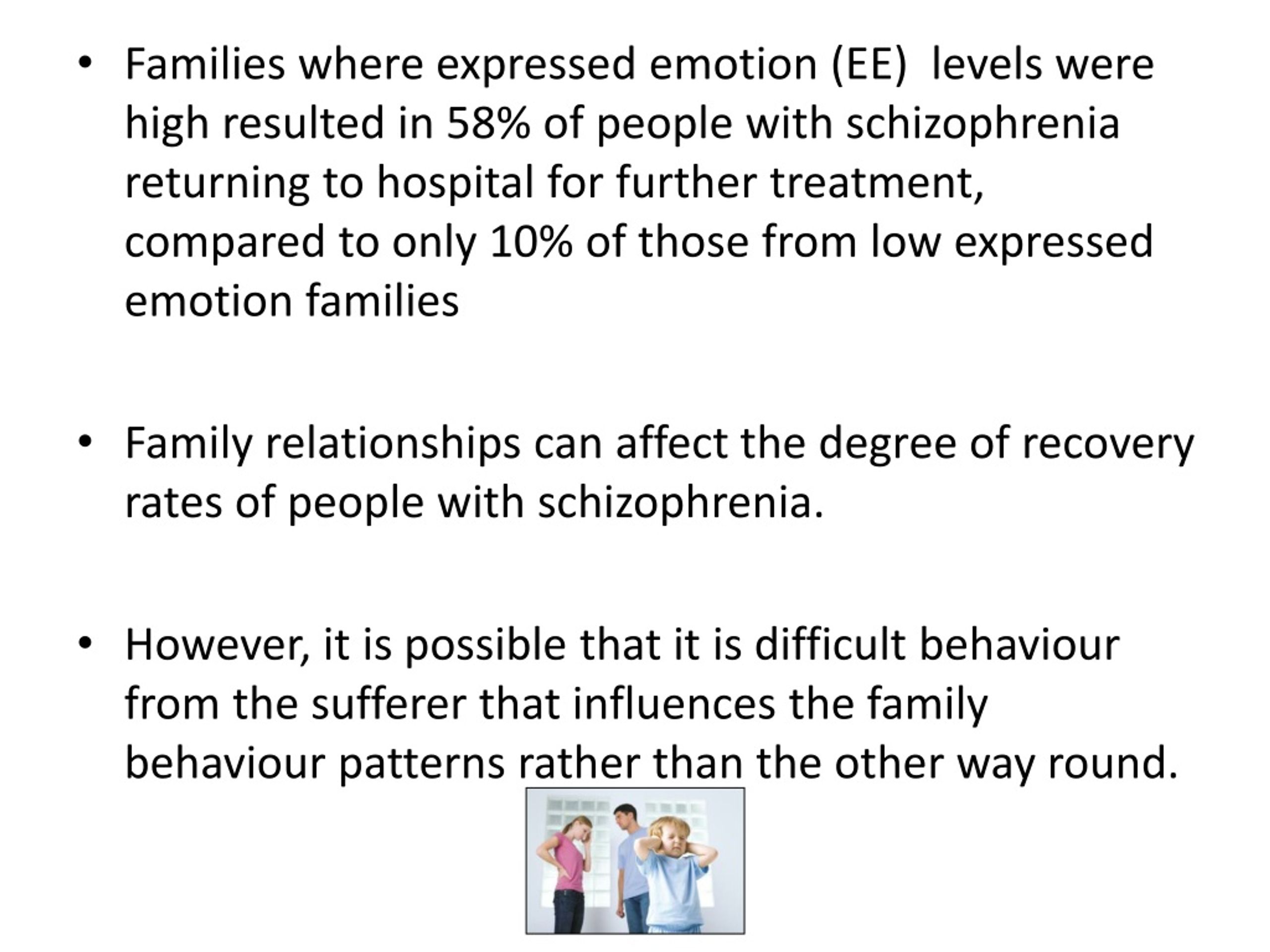


Ppt Psychological Explanations For Schizophrenia 1 Powerpoint Presentation Id



Pdf Expressed Emotion And Selected Patients Clinical Factors Among Caregivers Of Schizophrenic Patients Visiting Jimma University Medical Center Psychiatry Out Patient Unit South West Ethiopia



Hypothesized Relationship Among Expressed Emotion Ee Schizophrenic Download Scientific Diagram
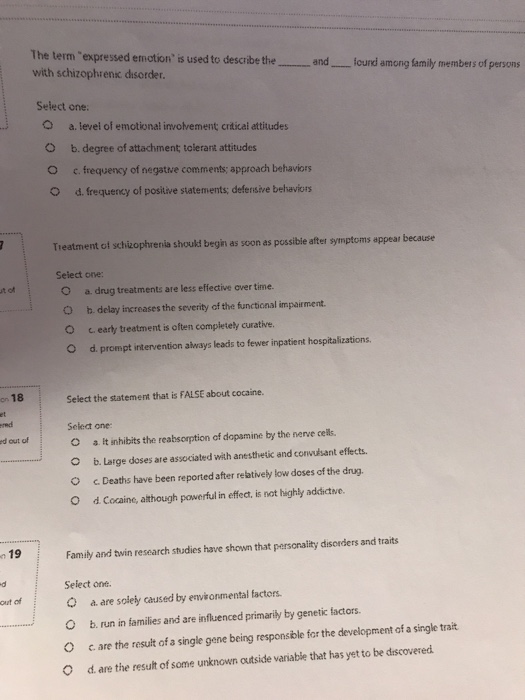


Solved The Term Expressed Emotion Is Used To Describe Th Chegg Com


Expressed Emotion And Relapse Of Schizophrenia In Hong Kong Document Gale Onefile Health And Medicine



Hypothesized Relationship Among Expressed Emotion Ee Schizophrenic Download Scientific Diagram
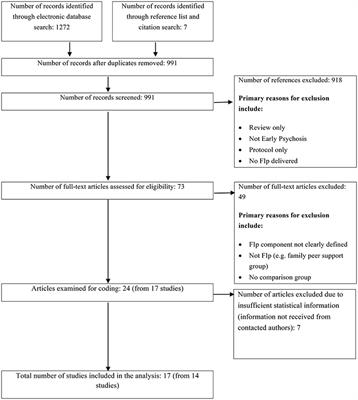


Frontiers Do Family Interventions Improve Outcomes In Early Psychosis A Systematic Review And Meta Analysis Psychology



Expressed Emotions And Schizophrenia In Pakistan



Negative Symptoms In Schizophrenia Diagnosis And Management



Pdf Distress Expressed Emotion And Attributions In Relatives Of Schizophrenia Patients Semantic Scholar


Packages Of Care For Schizophrenia In Low And Middle Income Countries
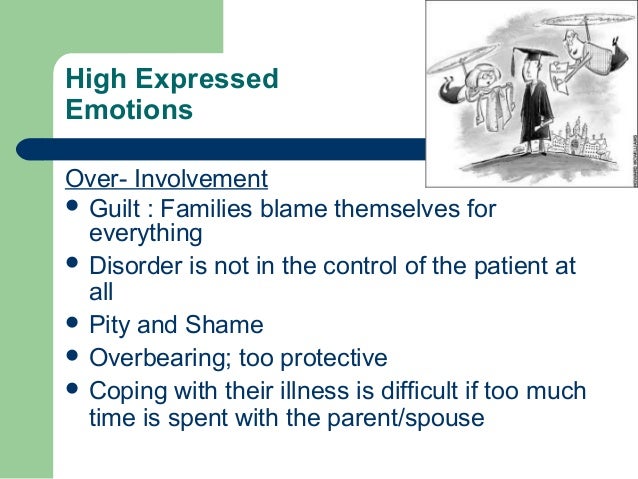


Expressed Emotions



Expressed Emotion And Relapse Of Schizophrenia In Hong Kong



Abnormal Psychology In A Changing World Seventh Edition



Psychological Disorders Chapter 15 Abnormal Behavior Historical Aspects Of Mental Disorders The Medical Model What Is Abnormal Behavior 3 Criteria Ppt Download



Flat Affect Symptoms Conditions And Treatment



Expressed Emotions And Schizophrenia In Pakistan
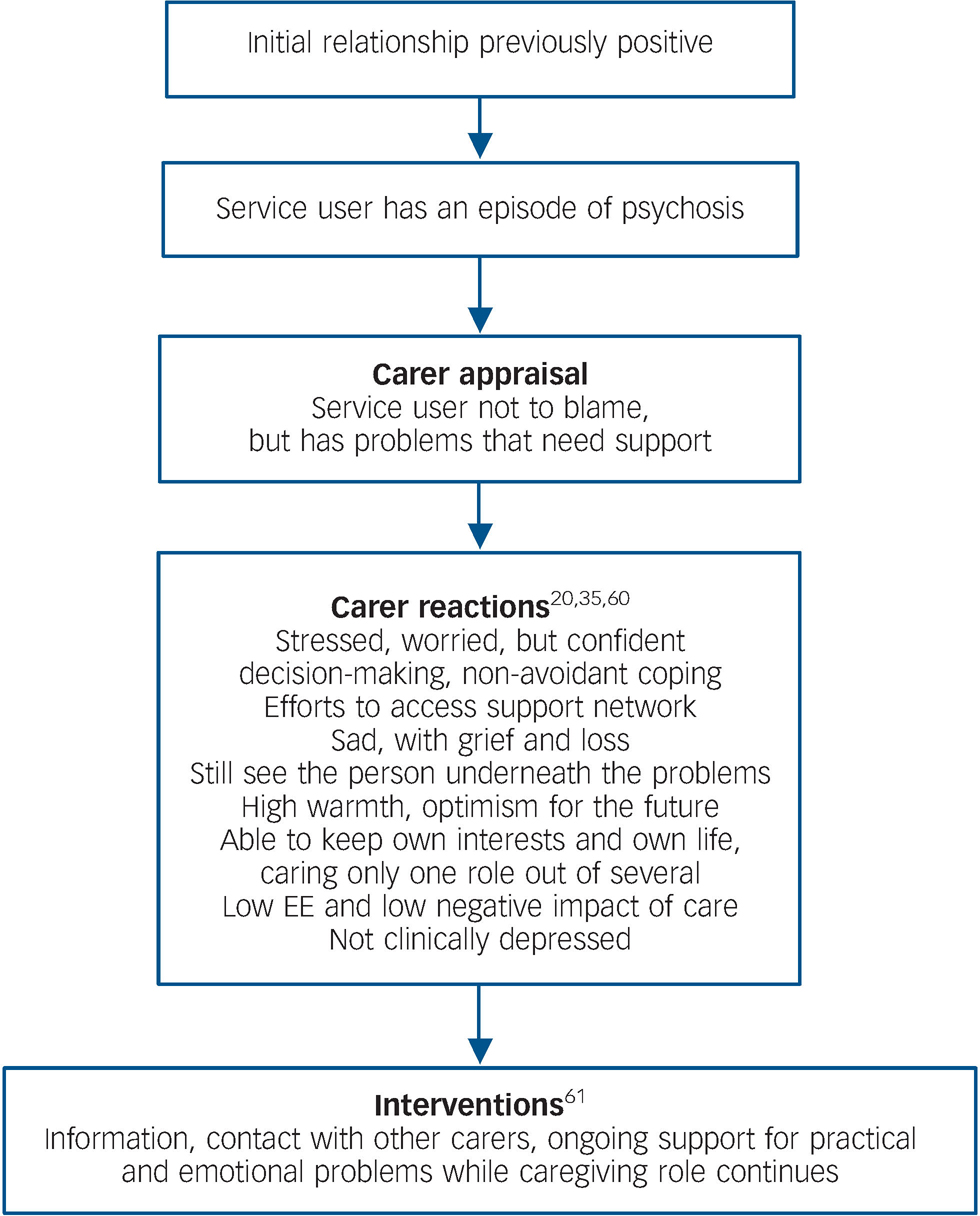


Cognitive Model Of Caregiving In Psychosis The British Journal Of Psychiatry Cambridge Core
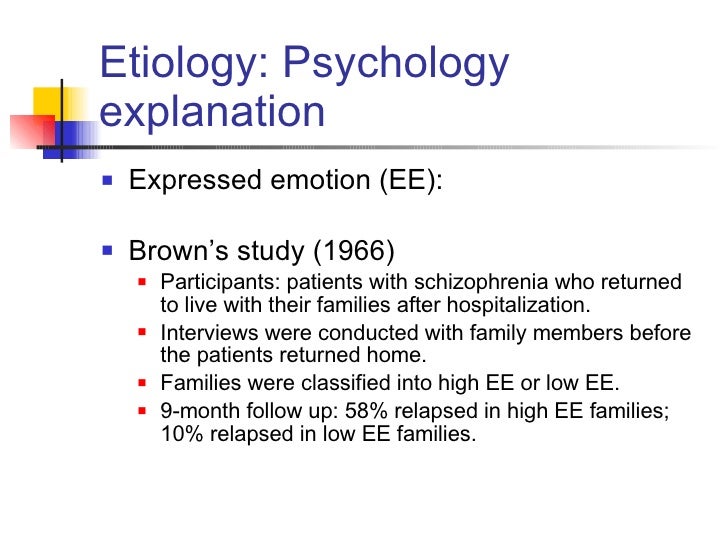


Schizophrenia



Abnormal Psychology In A Changing World Seventh Edition
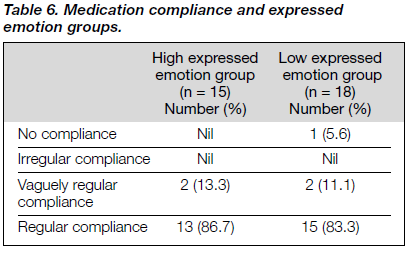


Expressed Emotion And Relapse Of Schizophrenia In Hong Kong


Preventing Schizophrenia And Lowering Risks Schizophrenia Com



Sociocultural Factors Sz Ppt Download



Psya4 Psychological Explanation Of Schizophrenia Youtube



0 件のコメント:
コメントを投稿